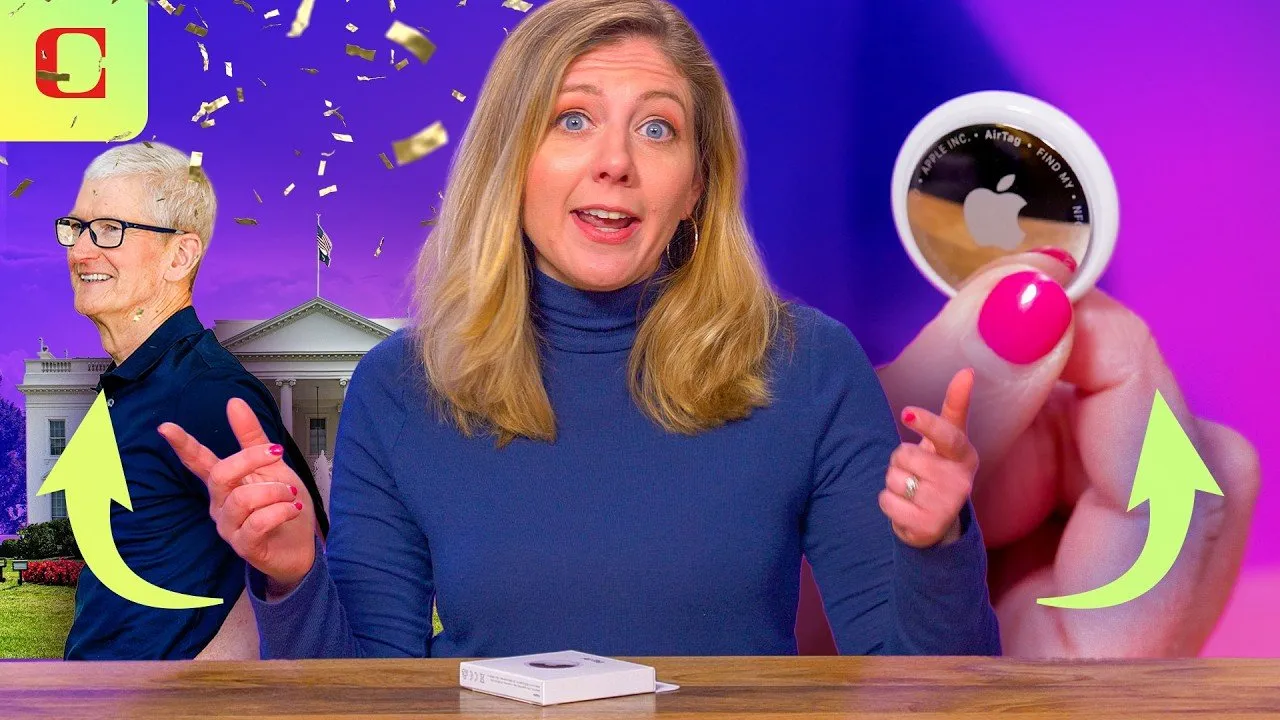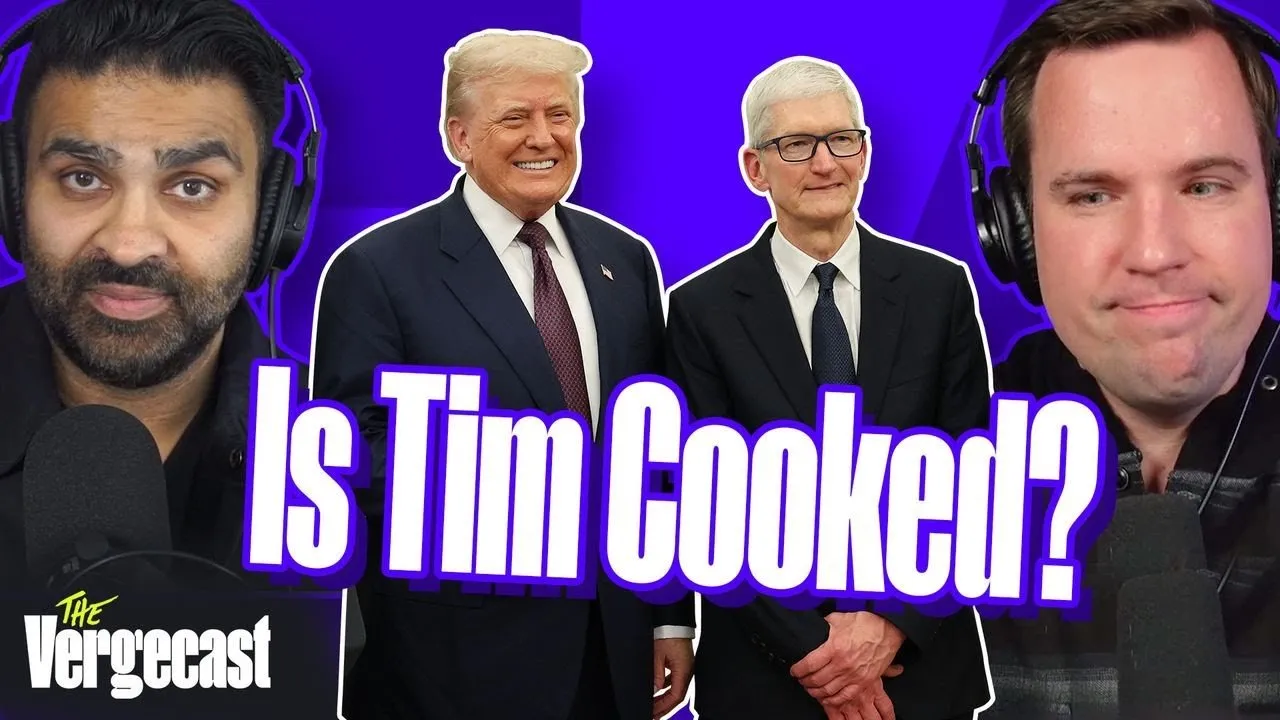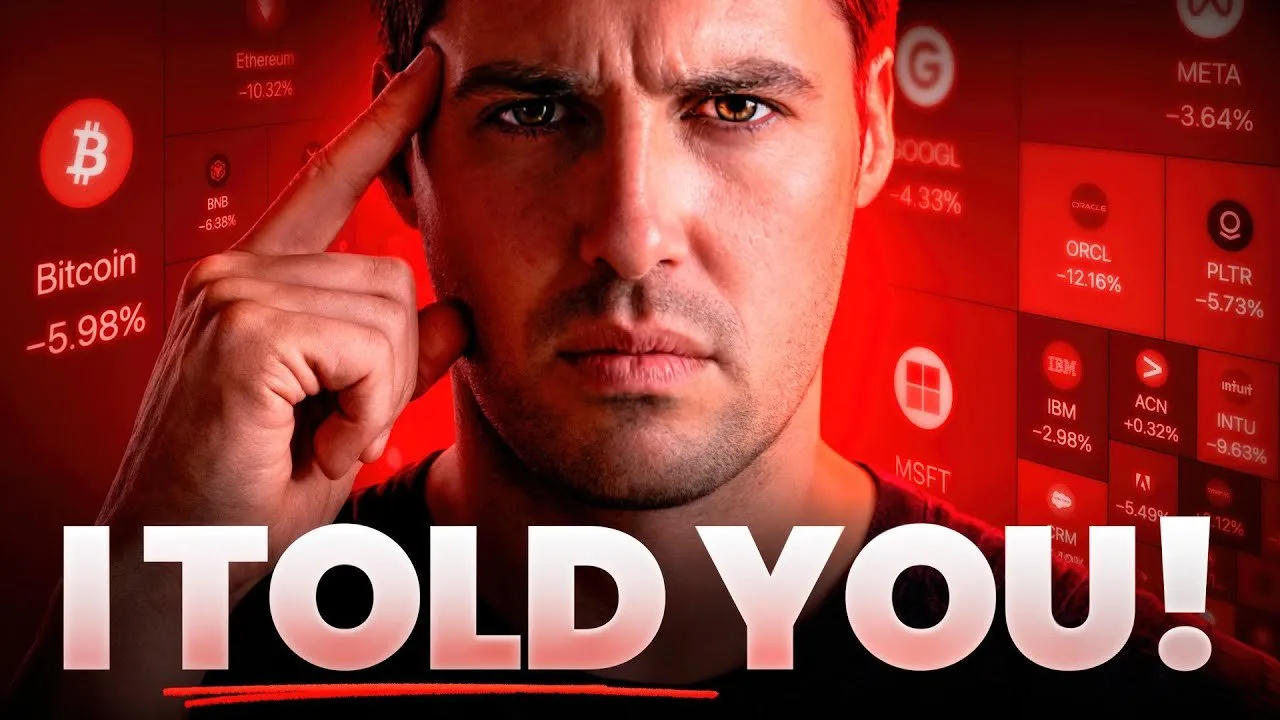Table of Contents
Discover how a former product manager turned travel optimization into an art form, unlocking millions in travel value through strategic points accumulation and redemption mastery.
Key Takeaways
- Credit card points can deliver 2-5 cents per point value through strategic international business class redemptions versus 0.6 cents when used for Amazon purchases
- Environmental arbitrage opportunities like Costco gold purchases and gift card promotions can generate massive point accumulation with minimal risk
- Modern tools like Award Tool and Points.Yeah have revolutionized point redemption by making complex searches accessible to casual users
- The "Happy Money" philosophy emphasizes using points and money strategically to enhance life experiences rather than pursuing extreme frugality
- Airline loyalty programs are worth more than the airlines themselves, with United's program valued at $26 billion versus the airline's $12 billion market cap
- Two-card optimization strategy maximizes returns: one card earning 3-4x on spending categories, another earning 2x on everything else
- Coast FIRE philosophy allows strategic spending when savings can compound to retirement needs without additional contributions
- Business class flights to Asia can cost 37,000 points ($222 equivalent) versus thousands in cash, representing 10x+ value multipliers
Timeline Overview
- 00:00:00–00:20:30 — Opening demonstration of point values with practical examples: San Francisco to Tokyo business class for 37,000 points ($222 Amazon equivalent) versus actual ticket prices, establishing Chris's expertise in finding extreme value arbitrage opportunities, discussion of the psychological barriers preventing people from optimizing points usage, and introduction to the "Frankenstein" accumulation problem where years of business spending create millions of unused points
- 00:20:31–00:42:00 — Deep dive into environmental arbitrage strategies including Costco gold purchases where 2% cash back combined with precious metal spreads create profit opportunities, detailed breakdown of gift card arbitrage through venture-backed startups offering temporary promotions, explanation of how Chris generated 2 million points and profit margins by buying $1 million in Amazon gift cards at 12-15% discounts and reselling at 10% discounts
- 00:42:01–01:10:00 — Comprehensive analysis of airline loyalty program economics revealing that programs are worth $22-26 billion versus airlines' $6-20 billion market caps, explanation of how 1% of US GDP flows through Delta Amex cards, discussion of airline profit margins ($3.40 per passenger for American Airlines) versus loyalty program profitability, and the role of credit card partnerships in airline survival during pandemic
- 01:10:01–01:40:00 — Career philosophy and work-life integration exploring Chris's transition from Wealthfront product manager to full-time content creator, the satisfaction derived from building products that genuinely help people optimize their finances, discussion of entrepreneurial opportunities versus lifestyle design choices, and the Mexican fisherman parable as applied to modern career decisions
- 01:40:01–02:20:00 — Money philosophy deep dive including Bill Perkins' "Die With Zero" framework for maximizing net fulfillment over net worth, Coast FIRE concept where accumulated savings can compound to retirement needs without additional contributions, exploration of memory dividends from early life experiences, and the psychological shift from wealth accumulation to strategic spending for life enhancement
- 02:20:01–02:31:04 — Practical implementation strategies for point optimization including environmental design principles, relationship dynamics in travel hacking couples, retention offer negotiations with credit card companies, and final recommendations for sustainable approaches to travel optimization that enhance rather than complicate daily life
The Psychology of Point Optimization
- Chris Hutchins accumulated 22.8 million points while Tim Ferriss has 15.5 million points over 24 years of business spending, yet both initially felt like "suckers playing a sucker's game"
- The psychological barrier stems from airlines engineering complexity to discourage redemptions, with 60% historical breakage rates when points expired unused
- Modern tools have democratized access to premium redemptions that previously required expert-level knowledge of airline partnerships and availability patterns
- The "Happy Money" philosophy emphasizes prepaying experiences to eliminate decision fatigue and maximize enjoyment during actual travel
- Environmental design reduces friction by placing optimization tools and credit cards strategically rather than relying on motivation or complex spreadsheet tracking
- The shift from scarcity mindset to abundance thinking allows strategic spending on experiences while maintaining financial optimization principles
Chris discovered his optimization obsession during college when he needed to "keep up with the Joneses" without parental financial support. This led to creative arbitrage like buying pizzas wholesale and selling slices to classmates for free personal meals. The psychology evolved from survival mechanism to professional sport, then into a sustainable business model through content creation.
The mental framework requires distinguishing between optimization for its own sake versus optimization that enhances life quality. Chris learned to set thresholds—originally $20, now $100—below which he stops caring about deals, preventing the "optimizer's curse" where time value calculations create more anxiety than benefit.
Advanced Arbitrage Strategies and Environmental Opportunities
- Costco's 2% cash back on gold purchases creates profit opportunities when precious metal spreads favor quick resale, with Chris purchasing $300,000+ annually
- Gift card arbitrage through venture-backed startups like Pepper offered 20-30% discounts to high-volume buyers willing to assume company bankruptcy risk
- Credit card promotional offers stack with gift card purchases—AMX offering $50 back on $200 Lowe's purchases enabled buying Dick's Sporting Goods gift cards for 75 cents on the dollar
- The US Mint $1 coin program allowed purchasing millions of dollars in coins with credit cards at face value, earning massive points while depositing coins directly at banks
- Hotel point sales create same-website arbitrage where properties cost $3,000 cash or $600 in purchased points for identical rooms
- Pudding cup promotions in the 1990s yielded 12,000+ Healthy Choice containers for 25 cents each, generating enough miles for seven years of international travel
Environmental arbitrage requires recognizing temporary market inefficiencies created by venture capital subsidies, government programs, or corporate promotional budgets. The key lies in identifying situations where multiple systems intersect—credit card rewards, retail promotions, and resale markets—creating risk-free profit opportunities.
Chris emphasizes that these opportunities require speed and scale awareness. The Pepper gift card arbitrage lasted months before the company adjusted terms. Costco gold spreads fluctuate daily based on precious metal markets. Success demands systems for monitoring opportunities and acting quickly when conditions align.
Strategic Tool Usage and Redemption Optimization
- Award Tool excels for destination-specific searches with flexible dates, showing availability across airline partnerships for specific routes like San Francisco to Asia
- Points.Yeah's Daydream Explorer provides inspiration-driven searches using world maps to discover unexpected deals like Lisbon business class for 45,000 points
- Seats.Aero offers database-style functionality for spreadsheet enthusiasts, with specialized tools for finding Lufthansa first class and ANA availability
- Points Path browser extension layers optimization directly onto Google Flights, providing real-time recommendations without separate platform navigation
- AMX Business Platinum cards deliver 35% point refunds on selected airline purchases, effectively yielding 1.54 cents per point versus 1 cent baseline value
- Transferable points (AMX, Chase, Capital One) provide 18+ airline transfer options versus airline-specific programs limited to single carriers and partners
The strategic advantage of transferable points lies in flexibility during award searches. When Award Tool identifies a great deal on Air France, AMX points can transfer instantly. When United has availability, the same points route through United's program. This flexibility dramatically increases odds of finding optimal redemptions.
Chris advocates for booking "good enough" awards immediately while setting alerts for optimal options. Airlines allow cancellations for minimal fees ($12-50), enabling speculative bookings that upgrade closer to departure. This strategy prevents missing opportunities while maintaining optimization potential.
The Economics of Travel Optimization
- Airline loyalty programs generate higher valuations than parent airlines—United's program worth $26 billion versus $12 billion for actual airline operations
- Credit card interchange fees (up to 3% in US versus 0.3% EU cap) fund reward programs, explaining why European cards offer minimal benefits
- Business class tickets may cost 10x economy in cash but only 2x in points, creating outsized value for premium redemptions over domestic economy flights
- The Credit Card Competition Act threatens reward program funding by capping interchange rates, potentially eliminating current arbitrage opportunities
- Airlines sell $4+ billion annually in miles to banks, with Delta processing 1% of US GDP through American Express partnership cards
- Average airline profit per passenger ranges from $3.40 (American) to $10 industry average, explaining aggressive credit card promotion during flights
Understanding these economics explains why certain strategies work and others don't. Airlines profit more from selling miles to banks than from actual flight operations. This creates systematic incentives to release premium award inventory at favorable rates, knowing banks pay higher prices per mile than passengers typically extract in value.
The economic model also explains program sustainability. As long as most cardholders redeem points suboptimally (Amazon purchases at 0.6 cents versus 2-5 cent travel redemptions), programs remain profitable even when sophisticated users extract maximum value.
Advanced Programming and Card Strategy
- Two-card optimization provides maximum returns: category-specific card earning 3-4x points on largest spending areas plus 2x "everything else" card for remaining purchases
- AMX Business Gold delivers 4x points on advertising spend up to $150,000 annually, perfect for entrepreneurs with substantial marketing budgets
- Bank of America Premium Rewards requires $100,000 deposit but yields 2.625% cash back on everything plus 3.5% on travel/dining with elite status
- Chase Ink Business Preferred offers 3x points on advertising, travel, and shipping for business owners seeking simpler category management
- Capital One Venture provides flat 2x points on all purchases without category optimization, ideal for users wanting simplicity over maximum returns
- Southwest Companion Pass requires $125,000 annual spending but provides free companion flights, valuable for families using Southwest's route network regularly
The optimal strategy depends on spending patterns and complexity tolerance. Entrepreneurs with large advertising budgets benefit from category-specific cards. Travelers preferring simplicity should choose flat-rate cards. Families with consistent travel patterns might prioritize airline-specific benefits over maximum point accumulation.
Chris emphasizes avoiding cards earning less than 2x points on any purchase category. The difference between 1x and 2x returns significantly impacts long-term accumulation, while differences between 2x and higher rates provide diminishing returns requiring increased complexity.
Relationship Dynamics and Implementation Psychology
- Successful couples often designate one "primary player" who manages strategy while the partner uses recommended cards without deep involvement
- Joint applications can yield bonus multiplication through referral programs, generating 2.5x normal signup bonuses when properly coordinated
- Communication becomes crucial when opening multiple cards annually—transparency prevents relationship stress over credit applications
- Travel planning benefits from shared decision-making even when one person handles technical optimization and booking execution
- Environmental design principles apply to relationships: making good financial habits easier while adding friction to problematic spending patterns
- Gift and charity applications provide outlets for excess points when personal travel plans cannot absorb accumulated balances efficiently
The wedding videographer story exemplifies creative point usage: Chris offered a $20,000 business class trip to Mauritius (costing $2,000 in points) in exchange for $13,000 videography services. This created value for both parties while optimizing point redemption rates.
Similar principles apply to employee benefits, graduation gifts, and charitable giving. Organizations like Miles for Migrants (now defunct) previously converted unused points into refugee relocation assistance, demonstrating altruistic applications for excess accumulations.
Future Outlook and Strategic Adaptation
- AI tools will democratize complex award searching, potentially reducing advantages for sophisticated users while improving accessibility for casual travelers
- Government scrutiny of airline devaluation practices may stabilize point values in the near term as regulatory pressure mounts
- The Credit Card Competition Act poses existential threat to reward programs by capping interchange fees that fund current benefit levels
- Increased automation may smooth out arbitrage opportunities as algorithms identify and eliminate pricing inefficiencies more rapidly
- Travel planning AI already excels at itinerary creation, weather-based adjustments, and activity recommendations for specific destinations and constraints
- Environmental arbitrage will likely shift toward new platforms and promotional mechanisms as existing opportunities become saturated or regulated
Chris remains optimistic about continued opportunities despite potential challenges. Edge cases and complex routing will likely preserve advantages for sophisticated users. New credit card products and promotional campaigns continuously create fresh optimization angles.
The key lies in maintaining flexible systems rather than rigid strategies. As tools evolve and regulations change, successful optimizers adapt methodologies while preserving core principles of strategic spending and systematic accumulation.
Common Questions
Q: What's the minimum point balance needed to access premium travel experiences?
A: International business class typically requires 80,000-200,000 points roundtrip, achievable within 6-12 months of strategic credit card applications.
Q: How do credit inquiries from multiple card applications affect credit scores?
A: One couple opened 26 cards in 2017, seeing credit scores improve from 670 to 798 and 794 to 805 respectively.
Q: What happens if airline partnerships change and accumulated points become worthless?
A: Transferable points (AMX, Chase, Capital One) provide insurance through 18+ airline transfer options versus single-carrier risk.
Q: How much time investment does serious point optimization require?
A: Initial setup takes substantial research, but ongoing maintenance requires 30-60 minutes monthly for experienced users with established systems.
Q: Can point optimization strategies work for average earners without business expenses?
A: Credit card signup bonuses offer 15-20x returns on initial spending, creating substantial balances even for modest household budgets.
Q: What protection exists against program devaluations eliminating accumulated point values?
A: Current government scrutiny of airline practices provides near-term protection, while diversification across programs reduces concentration risk.
Travel optimization represents a sophisticated arbitrage game where systematic approaches and environmental awareness create sustainable advantages. The marriage of technology tools with strategic thinking enables extraordinary experiences while maintaining financial discipline and long-term wealth building objectives.
Chris Hutchins exemplifies how passion projects can evolve into sustainable businesses while providing genuine value to communities seeking financial optimization. His journey from product manager to optimization expert demonstrates the power of embracing personal interests as potential career paths.
Subscribe for weekly insights on advanced travel optimization strategies and emerging arbitrage opportunities in the evolving points and miles landscape.





![This Bitcoin Opportunity Will Set Up Many Crypto Traders For Success! [ACT NOW]](/content/images/size/w1304/format/webp/2026/01/bitcoin-short-squeeze-opportunity-100k-target.jpg)